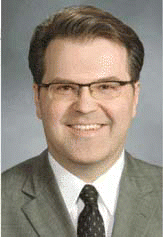Multivariate analysis showed no statistically significant relationship among sex, smoking status, allergy treatment, singing status, mucosal wave, and gastroesophageal reflux treatment and improvement in voice after voice therapy. However, patients with translucent polyps had significant voice improvement after voice therapy compared with those with fibrotic, hyaline, or hemorrhagic polyps, with a response rate of 81.8% vs 15.4% (p = 0.002), respectively. Patients with more edematous, translucent polyps, those with complete vocal fold closure and muscle tension dysphonia may be more likely to respond to voice therapy, said Dr. Cohen.
Explore This Issue
February 2007For Gayle Woodson, MD, Professor of Otolaryngology at Southern Illinois University School of Medicine in Springfield, the evidence may suggest that voice therapy will improve the voice in patients with vocal fold polyps and cysts, but emphasized that voice therapy will not lead to resolution of the lesions as it does for patients with vocal nodules.
Vocal nodules respond to voice therapy because they are essentially calluses. The ‘skin’ on the vocal fold gets thicker in response to stress. If you take away the stress, the hyperplastic response goes away, just like blisters on your feet go away when you start wearing shoes that fit properly, she said. On the other hand, polyps and cysts are permanent and do not go away with voice therapy. Voice therapy can help you get a better voice out of a larynx with a cyst or polyp, but it does not make the lesions go away.
Need for More Evidence
It is mportant to emphasize that these study results are preliminary and that more studies are needed to prospectively evaluate the optimal role of voice therapy as in this setting. Until then, surgery remains the treatment of choice. My research does suggest that voice therapy is a valid treatment option for patients with vocal fold polyps and cysts, said Dr. Cohen. It does not replace surgery as a whole, but may improve some patients’ voices so they may meet their daily voice needs without surgery.
According to Dr. Cohen, along with validating these retrospective results with prospective studies, further investigation is also needed to evaluate the longevity of voice improvements with voice therapy in this setting. In addition, more objective measurements of voice improvement, other than self-reporting by the patient as was used in this study, are needed to validate and clarify these findings.
For Dr. Sulica, the lack of studies on voice therapy for vocal fold polyps and cysts is probably the main reason that people don’t deem it effective in this setting. When you get down to examining the literature, there’s little good evidence that voice therapy is effective for polyps and cysts, he said. I think that’s because nobody’s done the studies, not because voice therapy is ineffective.

Leave a Reply